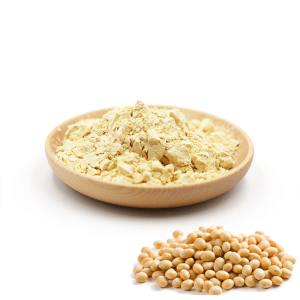
# Soy Fiber: A Sustainable and Nutritious Dietary Choice
## Introduction to Soy Fiber
Soy fiber, derived from the soybean plant, has gained significant attention in recent years as a sustainable and nutritious dietary option. As consumers become more health-conscious and environmentally aware, plant-based fibers like soy fiber are emerging as valuable additions to modern diets.
## Nutritional Benefits of Soy Fiber
Rich in Dietary Fiber
Soy fiber is an excellent source of both soluble and insoluble dietary fiber. Soluble fiber helps regulate blood sugar levels and lower cholesterol, while insoluble fiber promotes digestive health and regular bowel movements.
High Protein Content
Unlike many other fiber sources, soy fiber contains significant amounts of high-quality plant protein, making it particularly beneficial for vegetarians and vegans.
Low in Calories and Fat
Soy fiber is naturally low in calories and fat, making it an ideal ingredient for weight management diets without compromising nutritional value.
## Environmental Advantages
Sustainable Crop
Soybeans require less water and land compared to many animal-based protein sources, making soy fiber production more environmentally sustainable.
Reduced Carbon Footprint
The cultivation and processing of soy fiber generates significantly lower greenhouse gas emissions than many animal-derived products.
Keyword: Soy Fiber
Minimal Waste Production
Soy fiber is often produced from byproducts of soybean processing, contributing to a circular economy where agricultural waste is minimized.
## Culinary Applications
Baking Ingredient
Soy fiber can be incorporated into breads, muffins, and other baked goods to increase their fiber content while maintaining moisture and texture.
Meat Alternatives
Its fibrous texture makes soy fiber an excellent base for plant-based meat substitutes, providing both structure and nutritional benefits.
Smoothies and Shakes
Powdered soy fiber blends well into beverages, offering an easy way to boost daily fiber intake without altering flavor significantly.
## Health Considerations
Digestive Health
The fiber in soy helps promote gut health by feeding beneficial gut bacteria and supporting regular digestion.
Heart Health
Regular consumption of soy fiber has been associated with improved cardiovascular health through cholesterol reduction.
Blood Sugar Regulation
Soy fiber’s ability to slow carbohydrate absorption makes it beneficial for individuals managing diabetes or insulin resistance.
## Conclusion
Soy fiber represents a versatile, nutritious, and sustainable dietary choice that aligns with both personal health goals and environmental concerns. As research continues to uncover its benefits and food technology improves its applications, soy fiber is poised to become an increasingly important component of balanced diets worldwide. Whether used as a functional food ingredient or consumed as part of whole soy foods, incorporating soy fiber into one’s diet offers multiple advantages for individuals and the planet alike.